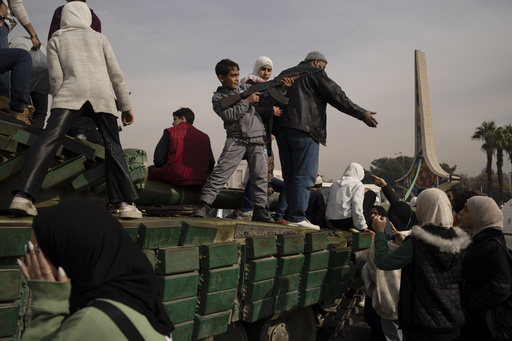THE HAGUE, Netherlands – The international body responsible for regulating chemical weapons convened an urgent meeting on Thursday to address the situation in Syria, particularly in light of growing worries regarding the nation’s stockpile of hazardous chemicals following the fall of President Bashar Assad.
The Organization for the Prohibition of Chemical Weapons (OPCW) informed Syria on Monday that it must adhere to international protocols pertaining to the security and destruction of dangerous agents, including chlorine gas, especially after rebel forces entered the capital, Damascus, over the past weekend.
“Chemical weapons have been employed in Syria numerous times, and it is imperative that those responsible, whom we have identified, face justice for their actions. Continued investigations are essential,” stated Fernando Arias González, secretary general of the OPCW, during his opening remarks.
He went on to emphasize, “Our findings over the previous years have been quite definitive, and we are hopeful that the evolving situation in Syria will enable us to bring closure to this matter soon,” referring to the absence of proper stockpile disclosures and the actual use of such weapons.
Although Assad’s administration has denied employing chemical weapons, the OPCW has uncovered evidence suggesting their consistent use during the ongoing civil conflict in Syria. Earlier this year, the organization reported that the Islamic State had utilized mustard gas in the assault on Marea.
In an uncommon decision, the OPCW’s executive council instigated this meeting, with hopes that under a newly established government, some of the 80 inspectors could be granted access to probe deeper into Syria’s chemical weapons activities.
Members of the deposed Syrian government are reportedly in the process of transferring authority to a new transitional Cabinet, led by Mohammed al-Bashir, who is said to have previously directed the rebel alliance’s “salvation government” in their southwestern bastion.
Arias González also expressed apprehension regarding the persistent Israeli airstrikes in Syria. “It remains unclear whether these attacks have impacted sites related to chemical weapons. Such military actions could pose a contamination threat and lead to the destruction of critical evidence for investigations by various independent international entities concerned with the historical use of chemical agents,” the Spanish official cautioned.
The last extraordinary meeting convened by the OPCW took place in 2018, following a chemical assault in Douma, located near Damascus, which resulted in approximately 40 fatalities due to poison gas. The preceding year, the organization determined that the Syrian Armed Forces released canisters of chlorine gas amid a significant military campaign.
Syria became a member of the OPCW in 2013 to mitigate the risk of military strikes in response to a chemical attack on the outskirts of Damascus. The 193 member states of the OPCW are mandated to declare their chemical weapon programs and dismantle them in accordance with international law. Established in 1997 under the Chemical Weapons Convention, the organization aims for the complete eradication of chemical weapons and received the Nobel Peace Prize for its efforts in 2013.


